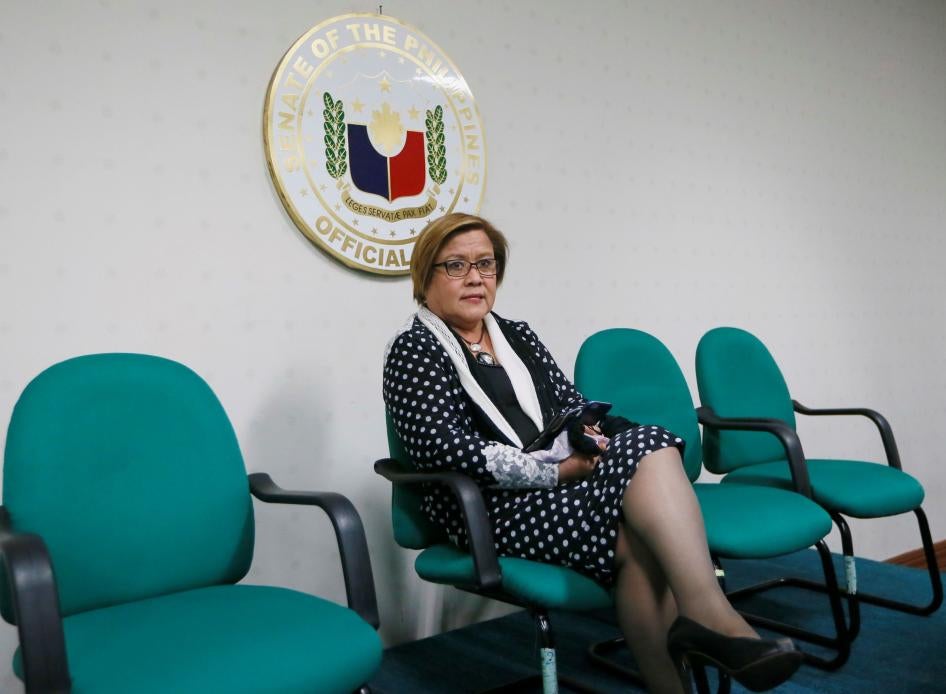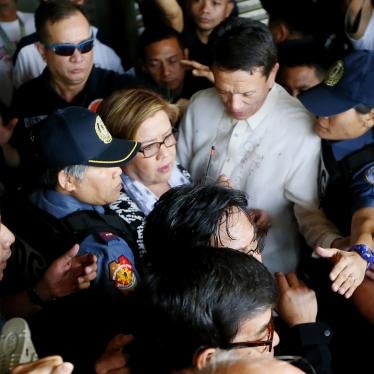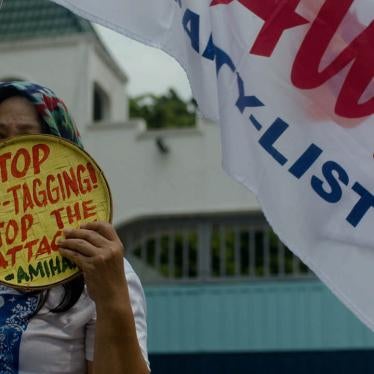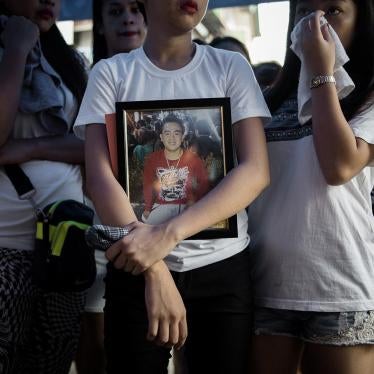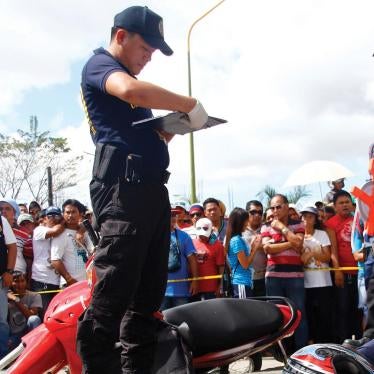(Manila) – Two key witnesses in the Philippine government’s case against Senator Leila de Lima, a longtime critic of President Rodrigo Duterte’s “war on drugs,” have retracted their testimonies, Human Rights Watch said today. The Philippine authorities should drop the charges against de Lima, release her from custody, and investigate allegations that the witness testimony was coerced.
De Lima, 62, who has been in police custody since February 2017, faces charges alleging that she received money from drug lords while serving as justice secretary. She has repeatedly denied the charges, contending the Duterte administration is retaliating against her for investigating extrajudicial killings under Duterte’s anti-drug campaign.
“Senator Leila de Lima has suffered five years in detention for an alleged crime that key witnesses now dispute,” said Phil Robertson, deputy Asia director at Human Rights Watch. “The authorities should immediately drop the politically motivated charges and release her, and impartially investigate the witnesses’ claims that they were coerced to give false testimony.”
Rafael Ragos, a former officer-in-charge of the Bureau of Corrections in 2012, in his sworn affidavit dated April 30, 2022, recanted earlier testimony he had given to the court in which he alleged that he delivered money to de Lima from drug lords. His testimony paved the way for filing the cases against the senator in 2017. Ragos said his testimony was false and coerced “upon the instructions of Secretary Aguirre,” referring to Duterte’s justice secretary, Vitaliano Aguirre.
In exchange for his false testimony, Ragos said he was dropped as a respondent in the same case and turned into a witness. In a television interview, a teary-eyed Ragos apologized to de Lima. “My apologies. My heart is heavy that I aggrieved another person,” he said in Tagalog.
A few days before Ragos’s retraction, on April 28, Kerwin Espinosa, a self-confessed “drug lord,” also withdrew his testimony made before senators in November 2016 implicating de Lima in illegal drugs. “Any statement he made against the Senator are false and was the result only of pressure, coercion, intimidation, and serious threats to his life and family members from the police who instructed him to implicate the Senator into the illegal drug trade,” Espinosa’s affidavit reads.
He had earlier told a Senate committee hearing that he gave de Lima drug money through her driver and co-accused Ronnie Dayan. Espinosa’s testimony is not part of the cases against de Lima.
The strongly pro-Duterte Senate retaliated against de Lima for initiating a Senate investigation into “drug war” killings in 2016 by removing her as chair of the Senate committee on justice and human rights. The administration subjected her to a misogynist propaganda campaign that included President Duterte threatening to release to the public a supposed sex video of her and her driver. The campaign against her culminated in the filing of three drug cases and her current detention at the national police headquarters in Camp Crame, Quezon City, where she has now been held for five years. She was acquitted in one of the cases while the two others remain in the courts.
De Lima earlier incurred Duterte’s ire when, as chairperson of the governmental Commission on Human Rights, she launched an investigation in 2009 into extrajudicial killings by the so-called Davao Death Squad in Davao City, where Duterte was the longtime mayor. Duterte later vowed “to destroy” de Lima.
The “war on drugs” that de Lima has sought to stop has killed thousands of people, mostly from impoverished urban areas. Estimates of the death toll vary, but the government itself reports that the police alone have killed more than 6,200 people. Other estimates by the media and civil society groups reach into the tens of thousands. The International Criminal Court in The Hague has initiated an investigation into these killings. De Lima, meanwhile, has continued to perform her senate functions even while in detention and is running for re-election in the elections this May.
“Senator de Lima should be included among the casualties of President Duterte’s catastrophic ‘drug war,’” Robertson said. “The senator’s imprisonment is among the low points of Duterte’s presidency, and the thousands of families still suffering from his punitive policies would doubtlessly welcome her release.”
